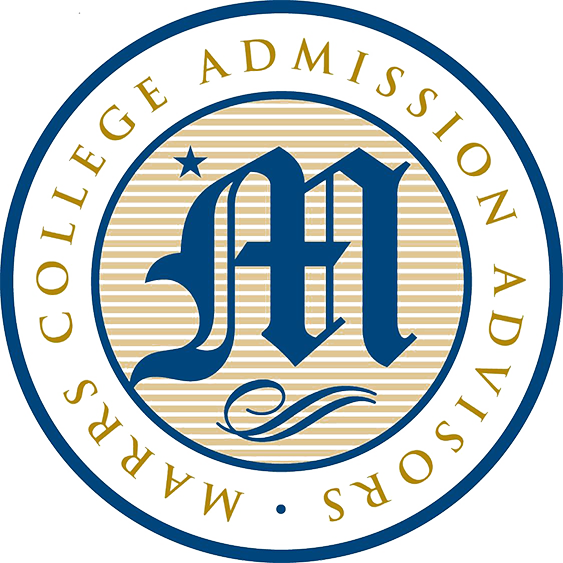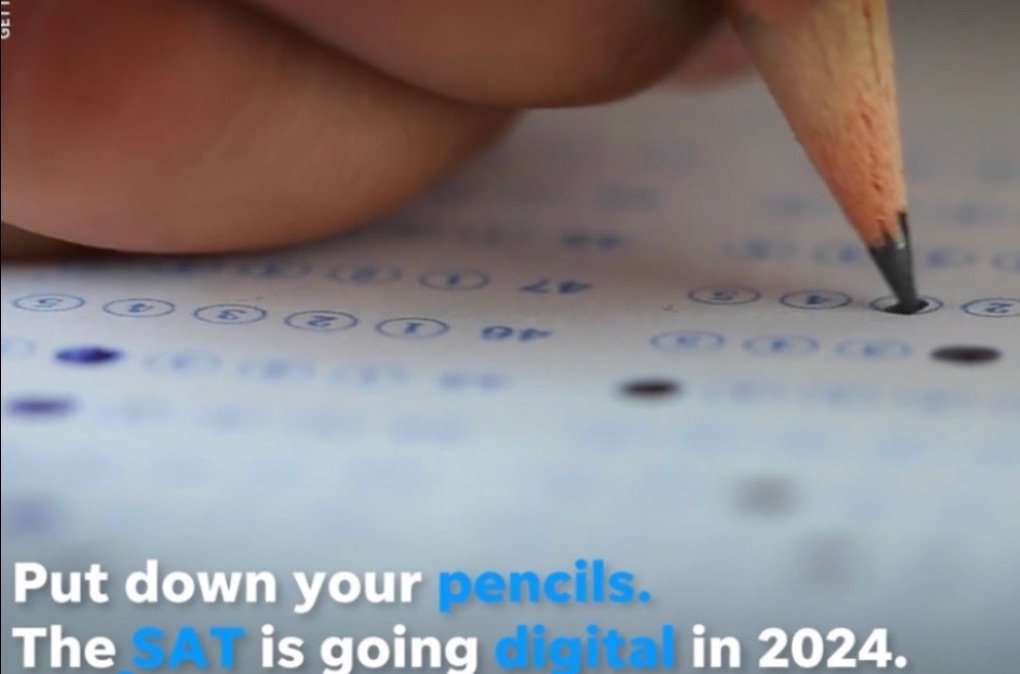Marrs Newsletter Archive
Advice for the College Search and Improving Advocacy
Dear Parents:
Spring break has come and gone, as has this school year (almost)! The two articles included in this issue are not closely related, but great information to keep in mind as you and your students begin their college selection and application process.
The first article gives us the argument for being “grounded” as we search for the best colleges for our children. It is easy to get caught up in the name of a school and how selective it is, but there are more important points to pay attention to regarding the specific needs of our own students. The article supports my personal philosophy regarding the highly selective schools and how to keep them in the right perspective when students are applying for admission.
The second article is a good one for reminding parents that the high school counselor is a great resource when your student needs someone to advocate for your student when the recommendation letter cannot express why a certain activity, or a particular class grade does not tell the true story of how fabulous the student is. Another way the counselor at school can advocate effectively is when a student has been deferred at a school or waitlisted. Oftentimes, a call by the student’s counselor at school can make all the difference.
The last six weeks of the school year are filled with AP exams, lots of papers due and final exams. It is important for our students not to lose focus with the beautiful spring weather. It is also the time students need to be finalizing their summer plans. Please encourage your students to be proactive and to not wait until school is out to figure out what they are going to do.
I love to receive feedback on the articles I select each month. Please feel free to drop me an email if you have comments or thoughts. I will respond promptly. Thank you!
Sincerely,
Catherine Marrs, CEP
Ivy League isn't everything. Here's what we get wrong about getting a good education.
Nearly 3,000 four-year colleges and universities enroll students in America. Only about 25 of them have an admittance rate of 10% or less, which means that we’re effectively letting the 1% dominate the conversation around higher education – and not for the better.
A narrative has taken hold in the public imagination that if you want a good future, you have to get into one of these highly selective schools.
Read More
Advocacy Is Missing in College Applications
Early spring means college acceptances and rejections will begin to flood in, and students along with their parents will be left celebrating or questioning the letters they receive. We’ve all had these conversations, and we know how they go.
“How did X student get in?” It’s a question I am constantly asked by parents who want to understand what made X student unique or interesting enough to earn an offer from a selective university.
Read More
Important Factors to Consider When Applying to College
Dear Parents:
It is an exciting time for juniors in high school. This is their last semester as an underclassman at their high school. Hopefully, they are working hard, realizing the grades they receive this semester will be the most recent grades colleges see when students apply to college. Remind your student to work hard and do their best to end the school year successfully.
The two articles in this newsletter focus on the importance of understanding how a proposed major can affect chances of admission at some schools. Pay attention to more than acceptance rates. Students need to dig deeper into their research to learn what the stats are for which majors are admitted more at the schools they are applying.
The second article is interesting to all of us who are paying for college. It is a good article comparing the cost of tuition today in the United States compared to college tuition in other countries.
Enjoy the month of February. Spring is on its way in Texas! Hope you find my newsletter this month informative. I would love your feedback. Thank you.
Sincerely,
Catherine Marrs, CEP
How Academic Majors Can Impact College Acceptance Rates
When teenagers are applying to a college, they often gauge their chances by looking at a university’s overall acceptance rate. That statistic, however, rarely tells the whole story.
College Transitions published an excellent post on its blog focusing on the need to be careful when selecting academic majors. “We strongly feel,” the authors stated, “that choice of major is one of the least discussed and most highly impactful components of the college application decision-making process.”
Read More
How College Tuition in the US compares to the Rest of the World
The last months of 2022 brought many political surprises. Among them were the rulings of two federal courts that halted President Joe Biden’s student debt relief initiative, which aimed to forgive the debts of tens of millions of people.
Shortly after it was first unveiled, the government announced it had to stop the application process while seeking to overturn the court orders to hinder the program.
Read More
Good to Know – Information for Parents of Teens Planning for College
Dear Parents:
Happy New Year! Both articles in this month’s newsletter have good information to know as you help your child navigate the college selection and admission process.
The first article is a great article filled with good terminology to know. The name of the school is not nearly as important to keep in mind, as what your student will do while he or she is there. Which schools will offer the most opportunity for your student to be a super star? Which schools will give your student the best ROI (return on investment)?
The second article this month is a reality check on what is happening with the number of students high school counselors are helping plan for college. The numbers of students per counselor seems to be looking better, but if you have a student who is not a self-starter and is not good with time management, working only with your student’s high school counselor may not give you and your student the best outcome.
I hope you find these articles helpful. Please let me know if you have questions or want to discuss any aspect of these articles. I would love to hear from you.
Sincerely,
Catherine Marrs, CEP
Great and Not-So-Great Money from Colleges
If you’re the parent of a high school senior and you’re thinking about how to pay for college without going broke, it’s a whole new, expensive world.
From my perspective, there are just two kinds of money: “Great money – or Free money” – which would be gifts, grants, and scholarships and then “Not-so-Great- money” – loans that need to be paid back.
Read More
New Data shows fewer students per counselor at nation’s schools, but caseloads remain high
The ratio of students to counselors in the nation’s public schools has reached its lowest point in at least 36 years, spurred both by an influx of new counselors and a nationwide decline in student enrollment, according to new data.
“While not the optimal ratio, it’s still good news,” said Jill Cook, executive director of ASCA.
Read More
Understanding the Different Options for Attending College
Dear Parents:
Happy Holidays and Merry Christmas! It is a joyous season for all of us, especially for Christians who are preparing for the birth of Jesus. It is also a time for our high school students to take their mid-term exams, turn in their papers for first semester and rest over their holiday break. Hopefully, our students will take advantage of their time off and catch up on their sleep!
My newsletter this month is dedicated to understanding the differences between an university and a college, as well as the benefits of being a part of the Honors College system public and many private schools offer students. Both articles are filled with great information.
Most of you know my attitude about the cost of attending college today and how much I emphasize the issue of Return on Investment (ROI). For so many students, an undergraduate degree is just the beginning of their higher education. A “soft” major like Psychology or Economics, is going to require graduate school to give a student the opportunity for a great job following graduation. I encourage students to always consider large research universities in their state, or states that are reasonably priced for out of state students, because they are always less expensive to attend, than private schools.
Enjoy this newsletter and I hope these articles offer more insight into evaluating the best options for your student. Also, I hope you will have time to relax during this joyous season and enjoy your family during their school break, especially if you have college students returning home for the holidays. I look forward to the coming new year and all that it will bring! Happy New Year!
Sincerely,
Catherine L. Marrs, CEP
Do you know the differences between a College and a University?
What is the difference between a college and a university?
I have always found it depressing and frustrating that few parents and teenagers know what the differences are between a college and university. And the differences are substantial.
Americans use the terms college and university interchangeably, but these two types of higher-education institutions are quite different.
Read More
Best Honors Colleges and Honors Programs
Are you craving the in-class intimacy of a tiny liberal arts college but also find yourself drawn to the bright lights of a vibrant, sprawling campus, the big-time sports, and the chance to be part of a large and passionate student community?
Not to sound like a middle-of-the-night infomercial but—now it’s finally possible to enjoy the best of both worlds—the honors college!
Read More
The State of Standardized Testing
Dear Parents,
It is a very busy time for high school seniors as they write their application essays, complete their college applications and hopefully, submit their college applications earlier versus later. Early Action and Early Decision I deadlines are almost here: November 1st, November 15th and December 1st.
Both the articles in this newsletter are focused on standardized testing. I have my own opinion as to why more and more colleges are going to a permanent test-optional testing policy. If a student has good scores, certainly within the range the school publishes they are looking for, then the student needs to submit those scores. If a student is not a good test taker, then it is fine to not submit scores. Good test scores can, in some situations, make the student stand out above other students applying who are not submitting scores. In addition, some merit scholarships still require SAT or ACT scores to evaluate qualifying for the scholarships.
The first article shows how test-optional schools have a harder time evaluating applicants for admission. Without test scores, it seems to be making the admission process more subjective on the part of the admissions team. Originally, the goal to eliminate standardized testing requirements by colleges was to help “level the playing field”, in other words, to help socio-economically disadvantaged students have a chance to compete with their wealthier peers for admission. As you will see when you read this article, the results have not shown that this approach has worked as well as anticipated.
The second article is, in my opinion, a statement on what is happening to the K – 12 education system in the United States. If the data was just from the past two years, I would say it was Covid related, but the study includes the past five years. The article is about the decline of ACT scores in the US. This is why it is so important to be involved with your local PTA and local school board, so you know exactly what is being taught in your student’s high school.
I hope you find these articles as interesting as I did. Please feel free to give me feedback directly in an email. I love hearing from my readers. I wish all high school seniors the best with their application submissions. I know it is hard for these teens to realize they will go to college where they are supposed to go. Have a wonderful Halloween! Watch out for the goblins this year!
Sincerely,
Catherine Marrs, CEP
Colleges that ditched test scores for admissions still struggle with bias
One college admissions officer at a large public university described how test-optional admissions had spurred more disagreements in his office. A third reader on an application was often called in to break a tie when one staffer said ‘yes’ and another said ‘no.’
Without SAT and ACT scores, he explained, the job of admitting students had become more subjective and more time-consuming.
Read More
A Worrisome Trend': ACT scores continue to decline, dropping to lowest levels in 30 years
Average scores on the ACT from the high school graduating class of 2022 dropped to their lowest point in 30 years.
Approximately 1.3 million students in this year’s graduating class took the ACT, a test comparable to the SATs that some students use in their college applications.
Read More
Is College the Only Option?
Dear Parents:
The title of this newsletter may sound strange coming from a college counselor, but in today’s economic times, it is important to evaluate all options. Our teens today are less interested in incurring student debt than the millennials were when they applied to college. I think it is wise to have a discussion about all options: taking a GAP year, alternative ways to learn a skill to get a good job, and whether college is the best way to achieve a student’s goals.
The first article in this month’s newsletter is about the questions to ask when visiting a college campus. It is really important to dig deep. Ask questions of not just the admissions’ staff, but also students on campus, professors, pre-med advisors, as well as administrative staff. There are no stupid questions. Students need to ask the questions. They know what they want in a college experience. The best way to find out if a school has the potential to meet the needs and wants of a student is to ask lots of questions when touring.
The second article is about vocational alternatives. College tuition continues to escalate every year. The emphasis on equity, diversity and inclusion is causing colleges to spend millions of dollars to bring on Deans to set up these programs. In my opinion, they do not add value to the education they are providing to students. In addition, college debt is growing. Students need to consider alternatives to the traditional path to college. Some students, especially those who have no clue what they want to major in, may want to consider earning a certificate as a skilled tradesman, then they can pay their way through college. Trades (HVAC, electricians, auto mechanics, diesel mechanics and plumbers) can offer great careers and are essential to sustaining our way of life. There is currently a shortage of skilled tradesmen today. Other vocational certificate programs can be found in healthcare. X-ray technicians, echocardiographers, sonographers and many other skilled technicians in hospitals are currently needed in most large medical centers.
The goal of my newsletters is to give parents additional information regarding the college planning process. Sometimes, the information I offer may not be traditional. I want parents to have as much information available about every aspect of college planning. College is not for every student. 40% of all college students drop out of college before graduation. That is a staggering figure provided by the US Statistics and Data for 2022, mainly because so many of the 40% took on debt to go to college.
Sincerely,
Catherine Marrs, CEP
26 Admission Questions You May Not Have Thought Of
The college admission process is long and it is often complex. An important part of that process is visiting the colleges on your student’s list.
As intimidating as this may sound at first, college visits can be one of the fun aspects of this intense process.
Read More
Why Blue-Collar Work Can Give Gen Z A Fresh Competitive Advantage
The blue-collar world is reinventing itself—and Gen Z is here for it.
Once you get past the outdated stereotypes of blue-collar work being somehow ‘lesser’ than white-collar careers, it’s easy to see just how much the trades have going for them.
Read More
Back to School and the College Admission Process
Dear Parents:
It is hard to believe summer is over! I hope it was a restful and fun couple of months. Many schools in Texas have already started back this school year. High School seniors are hopefully starting their college applications and the application essays. If not, please encourage your senior to start now. Many seniors and juniors are practicing for the standardized testing that occurs at the end of August through December.
The two articles I have selected this month are from Forbes magazine. Sometimes Forbes has excellent articles on the subject of college. The first is a great reminder of how to approach applying to college. It stresses the need for students to be purposeful in their approach to selecting schools to apply for admission. Both the Common Application and the Coalition College Application give students the opportunity to apply to an excessive number of schools. Excessive, in my opinion, is greater than 10-12 schools. If students are really researching schools, they will find 10 -12 that absolutely will meet their needs and their interests. Applying to more than 10-12, in my opinion, adds significant stress and pressure on seniors. Each school may have more than one essay. If each school has two, the number of essays required can really add up. Students taking AP and IB courses are already dealing with significant homework. If they are also taking standardized tests in August and September, that too can add additional stress.
The second article is on a topic that is being discussed more and more these days due to the cost of attending college. It is a discussion of the pros and cons of trade schools. Not every senior is ready for college right after high school. Some high school students are not interested in attending college, rather they enjoy working with their hands, possibly being outdoors or running their own entrepreneurial operation. We are going to be facing a shortage in skilled labor in the coming years. There is good money to be made as a plumber, HVAC expert, jet engine mechanic and automobile mechanic.
I hope you find these interesting and informative. I wish each and everyone of you a successful and enjoyable fall with your high school students. Please let me know if you have any comments or questions about these articles or the college admission process in general.
Sincerely,
Catherine
Catherine L. Marrs, CEP
College Admission: This Is Not A Race
Everyone take a deep breath. If you are a college-bound high school senior, it is probably hard to ignore the fact that August has arrived…
College admission is not a race, but if it were it’s better conceived as a marathon and not a sprint. Perhaps it is even better framed as a long walk requiring an occasional jog. But if you pace yourself it can be an enjoyable and meaningful journey
Read More
Trade Schools Vs. Traditional College: What You Should Know
We all know that a college education is usually worth the financial cost, but what about attending trade school instead? Unfortunately, many adults with influence over high schoolers never take the time to ask this important question…
These are just some of the reasons to consider trade school, but there are others.
Read More
Seniors! Decision Time: What To Do Now
Dear Parents:
It is an exciting time for our seniors. It is now time to make the decision where to go to college in the fall. No longer is it just a fantasy. Seniors are realizing they are leaving home and spreading their “wings”.
The two articles I am highlighting this month are directed to seniors and their parents, but all high school students could benefit as they prepare for their college search. The first is a great check list to follow as seniors make their final decision where to attend college. It is very important to take the time to email each of the schools your senior was accepted, but not attending, to let the schools know another school has been selected to attend. Thank the school for having the confidence in the student to want them as part of their incoming class.
The second article is one to seriously consider as parents finalize how to pay for college. Return on Investment (ROI) is such an important topic to discuss with your students. College is not cheap (a major understatement!) and students need to be realistic about the amount of money their families have to pay for their undergraduate education.
Enjoy all the excitement that goes with having a senior in your home. High School graduation is a big deal. It is a great accomplishment and needs to be celebrated. Hopefully, everyone will keep their focus as they finish their last high school Advanced Placement exams and semester finals.
Thank you for taking the time to read these important articles. Please let me know if you have questions about college planning or any aspects of financial aid.
Sincerely,
Catherine L. Marrs, CEP
April Checklist for Seniors in High School
It can be difficult to stay on track during the lengthy college admissions process. But now, more than ever, it’s important to focus on your future and think about what you’d like in a college, despite where others would like for you to go.
As the college search winds down, here's a useful college checklist high school seniors can utilize during the month of April.
Read More
Is the Degree Worth It? ROI Can Provide a Clue
When families are checking out colleges and universities, many don’t consider what the academic program’s return on investment will be. And when future earnings are important, then selecting the right major becomes an even more weighty decision for a college-bound teen.
But there are a number of internet tools that can help students formulate the ROI of certain majors.
Read More
Understanding Scholarships and How to Appeal an Offer
Dear Parents:
Spring is here! Our students are in the final stretch of the school year. Hopefully, seniors are hearing positive results from their college applications. It is important to remember that our students get into the schools they are supposed to. They will attend the best school for them. Seniors and parents need to look forward, not backward.
My newsletter this month focuses on financial aid. Hopefully, seniors are receiving generous financial aid offers with mostly merit aid, but sometimes an appeal letter needs to be written to ask for reconsideration for additional aid. One of the articles today addresses this issue. Scholarships that do not require paying money back are key. The other article is how to apply for independent scholarships. College is expensive. Every dollar parents do not have to pay, helps.
Enjoy Spring. It does not last long in Texas! Please let me know if you have questions about either article. I am happy to help. Thanks for taking the time to read this month’s news.
Sincerely,
Catherine L. Marrs, CEP
The Top 10 Parent Scholarship Questions & The Answers
Parents only want what is best for their children. The same is true when they are researching the college admissions process and figuring out how they can help their students pay for college.
We are covering the top 10 frequently asked questions parents ask about scholarships. Here is what you need to know:
Read More
Wondering what to do with that college financial aid offer? Appeal for more money
With universities sending out their admissions decisions in March and April, one aspect on many families’ minds these days is how they plan to finance their child’s upcoming college education.
Here’s how to appeal your college financial aid offer, plus what you can expect.
Read More
Standardized Testing: Updates and Clarifications
Dear Parents:
Winter is here! The snow is falling, and our students are having a snow day! I have had the opportunity to review lots of articles for our February newsletter due to the weather. I have found two articles that are great information for both parents of sophomores and juniors, as well as information for parents with students in the Class of 2025 and beyond.
The first article is about the New SAT format. It will be introduced officially to the class of 2025, with the PSAT in fall, 2023 using the new digital format. It will be shorter and no longer use No. 2 lead pencils. Fortunately, standardized testing will continue to be a tool for students to use as they plan for their college applications. Submitting test scores when they are good scores, are a great thing to do. Studies are repeatedly showing since March 2020, that students who submit good test scores, have a greater chance of being accepted to colleges that are test-optional, than students who do not submit test scores.
The second article is also from Compass, a national test prep organization. I am fond of their Blog but have found the quality of their test prep operation locally is not always consistent. When working with large, national companies, the quality of service is sometimes compromised. The Compass Blog is excellent and always a great resource for parents and students.
Enjoy February and the long Presidents’ Day weekend. When I was in high school, we did not have Presidents’ Day weekend, rather, we celebrated President Lincoln’s birthday on February 12th and President Washington’s birthday on February 22nd. I hope our juniors are using the long weekend to visit colleges, since college visits are a great way to demonstrate interest to schools, and to better know if a college is one that would be a good school to attend.
Sincerely,
Catherine L. Marrs, CEP
The New Digital SAT
The days of the #2 pencil may be numbered, as College Board is on its way to a fully-digital replacement of the SAT. This post shares what is currently known about the new exam and also offers discussion of the unknowns that will become clear over the next 18 months.
The College Board is revealing the most important facts about the digital SAT while still leaving room for necessary follow-up on the details.
Read More
PSAT National Merit FAQ
The NMSP is a program administered by the National Merit Scholarship Corporation in cooperation with the College Board to recognize high achieving high school seniors. Some recognition levels are based purely on junior PSAT/NMSQT scores, while other levels have additional qualifications.
The NMSC gives out approximately $50 million in scholarships each year, and some colleges provide lowered—or even free—tuition...
What Students Need to Know To Go Off To College
Dear Parents:
Happy New Year! It is hard to believe 2021 is behind us! What a year it was! 2022 is going to be better! Our students are back in school, and some of our seniors have received some of their college admission decisions. Hopefully, everyone went back to school with a positive attitude that their second semester will be a good one.
Both articles in my first newsletter for this new year are all about what students need to know to be able to successfully attend college. It is important that we as parents are confident our students are ready to handle decision-making on all levels without us. We must help our students learn how to manage money, as well as how to make good decisions, whether it is when they are out socially where students often are not making good choices, or simply choosing what classes to take each semester.
Thank you for taking the time to read my newsletter. I will continue to do my best to bring good information each month to your attention that you can use as you guide your students through high school and beyond.
Sincerely,
Catherine L. Marrs, CEP
5 Life Skills Kids Should Know Before Heading Off To College
When it comes to sending kids off to college, parents hope that they have provided their teens with enough basic life skills to be able to survive the first year away from home. Inevitably, there are going to be some things that kids will have to learn on their own, but if they at least have a good foundation of knowledge, they will fare better than those who go out on their own never having had to do anything for themselves.
Read More
Transition to College: Here's what Students Have to Say About It
Making the shift from high school to college isn’t easy for everyone. If you’re going through this transition now or will be in the near future, we thought it might be helpful to hear from students who have already gone through the transition-to-college process.
In June 2021, we surveyed* a group of college freshmen and sophomores who are registered users of CollegeData about their first year of college.
GAP Year - A Good Idea or Not?
Dear Parents,
The holidays are here. Soon, our students will be out of school for two weeks. Our students that are in college are coming home for the holidays. Hopefully, their first semester was good for both those in college and those in high school. It truly is a joyous time to be with our families.
The articles in this newsletter cover important issues to consider as our juniors begin the college selection and application process, and as our seniors wait for their college application outcomes. The first article is about taking a GAP year. It is short, but informative. Every college has their own policy regarding the GAP year option. What is important to remember that every student, even those who are absolutely sure they are going to take a GAP year, still apply to colleges in the fall of senior year. It is far easier to reapply to college, than to not apply at all, take the year off after they graduate, then apply. The second article on college majors will not be a surprise to most of my readers. STEM majors still are the top 10 majors to pursue in our current economic climate.
I wish each and every one of my readers the best for this year’s holiday season. I wish you health, happiness and peace during this special time of the year. I look forward to a great year in 2022 with lots of health, happiness and prosperity for everyone! Happy New Year!
Catherine L. Marrs, CEP
How to Successfully Request a Gap Year Deferral
Some students choose to defer their undergraduate studies to take a gap year, using the time to work, travel, or volunteer. Aside from having a concrete gap year plan, students must ensure that they apply for a deferral at the college they plan to attend.
The deferral process differs across colleges, and thus it is vital that students understand their college's policies to successfully apply for a gap year.
Read More
10 College Majors with the Highest Salaries for Graduates
In April 2020, the United States reached a 14.8% unemployment rate, which is highest since they began recording in 1948, according to the Congressional Research Service.
Despite the job market challenges that many faced, college graduates entered the workforce after graduation making more than they ever have before. The (NACE) reports that the average salary for the Class of 2020 was $55,260.
What Every Parent Needs to Share with their Students as They Apply to College
Dear Parents:
Hopefully, your seniors are submitting their applications as I write this, so they are beating the admission deadlines, versus just meeting the deadlines. The message I really want to convey with this month is the importance of discussing the issue of college debt. It is so important students understand the cost of attending college, especially if your student is planning to major in a “soft subject” such as Anthropology, Psychology, Philosophy, Political Science, a foreign language or Fine Arts. These majors will require additional education, or if the graduate wants to immediately enter the workforce, will generally find jobs that are not known for paying high salaries.
Students need to understand the concept of “Return on Investment “(ROI). The type of major needs to be a consideration when evaluating how much to pay each year for a college education. Students need to attend colleges that are affordable. For instance, a four-year college degree from a highly selective school that does not offer Merit Aid in English is fabulous, if paying full price for this degree does not affect the parents’ ability to retire when they want to and does not affect their ability to pay for their siblings’ educations.
Although, the current Administration in Washington DC is moving towards forgiving student debt, it is not a long-term guarantee. It is complicated. Again, the earlier in the college planning process parents visit with their college bound children about the cost of college and how to determine what is reasonable to pay, the better.
Both articles in this newsletter are about Financial Aid. The first article is great because it is about mistakes to avoid when completing the Free Application for Federal Student Aid (FAFSA).The second article is about Parent Plus Loans. I hope you find both helpful and informative.
Thank you. Have a wonderful Thanksgiving! We are blessed to live in the United States of America. We have so much to be thankful for this year.
Sincerely,
Catherine Marrs, CEP
10 FAFSA Mistakes that Affect Financial Aid
The Free Application for Federal Student Aid (FAFSA), is a Department of Education managed form required by federal and state governments.
Colleges also require FAFSA information from students that wish to qualify for financial aid, federal work-study, and other financial aid programs, such as the TEACH Grant.
Read More
Parent Plus Loans: How much Debt are Parents in and Can it be Forgiven?
The parents of dependent undergraduates can use a Direct PLUS Loan, commonly referred to as a Parent PLUS loan, to borrow up to the cost of the student’s attendance each year with no limit on the amount borrowed.
While a loan without a cap may seem appealing, there’s potential for parents to get into serious debt.
Tips for Preparing for the College Selection Process
Dear Parents:
Fall is well underway. The leaves are turning lovely colors of red and gold. The temperatures are once again comfortable. Seniors are busy submitting applications to college for the Fall 2022 admission cycle. Feelings of anxiety are running high among this class of 2022.
The articles in this newsletter address the process of selecting schools to apply to, and what is important to pay attention to when applying. Hopefully, this will help students in the class of 2023 and 2024. College Fit is far more important than the college rankings. Applying to 10-12 schools is far more reasonable, if students do their research about the schools.
Enjoy the weather, football and all the great things that go with this time of year. Thank you for taking time out of your busy day to read my newsletter.
Sincerely,
Catherine Marrs, CEP
What Students Might Not Believe about College Admissions
When I was in high school, the college admissions process felt like the most important and stressful thing in the world…
Our students feel their worthiness is judged by where they are accepted.
Read More
Op-Ed: Another record year for college applications? Please, no
With the first round of college admissions deadlines days away, my advice for this year’s high school seniors is simple: Apply to fewer colleges.
It will benefit you and every other student applying.
Attention Seniors & Parents!
Attention Seniors and Parents!
To Parents:
School is well underway and our high school seniors are scrambling to get their college lists finalized and their applications finished. Students are furiously writing college essays, working hard to keep a balance with all their senior classes and the demands of football, band and/or whatever else they are involved in this fall.
Both articles in this newsletter are geared to seniors and their parents, but they are equally good for all parents with high school students. The article about the Fall To Do List is an important one for juniors to take to heart now. Some of the items on this list can be done earlier than fall of the student’s senior year. All items on the list are good, solid bits of advice.
The second article is one of many I will be sending out this fall about the FAFSA and CSS PROFILE. Both will open October 1st, 2021 for seniors and their parents in the class of 2022.
The sooner the FAFSA and CSS PROFILE can be submitted to the schools requesting both documents after October 1st, the better. The article in this newsletter is addressing the EFC (Expected Family Contribution).
As we move into fall and all the exciting events seniors are looking forward to like homecoming and special senior tradition days, please support your seniors in being good listeners. Our students are under a lot of stress. It is scary being a senior and realizing for the first time that they really ARE going to be leaving home next fall! It is no longer a distant idea, it is very much becoming a reality. Each time they submit an application to college, they are reminded of this.
Thanks for taking the time out of your busy day to read my newsletter. It is my goal to help both high school students and their parents have the best experience possible as they plan for college. I am grateful for you all and your teen-agers. This is both an exciting time for them and a stressful one filled with anxiety and insecurity. Do let me know how I can help. Teens are the most interesting humans on the planet. Every day is a new day in the life of teen.
Sincerely,
Catherine Marrs, CEP
A Senior Fall To Do List This Year
The to-do list for high school seniors seems to be growing longer each day.
When they’re not doing homework, participating in their extracurricular activities, hanging with friends, sleeping, eating or texting, here’s what they’re thinking about…
12 Expected Family Contribution Tips
One of the biggest questions that parents with college-bound children puzzle with is if their child has a chance for financial aid.
The first step that you should take when grappling with this issue is to obtain your Expected Family Contribution (EFC)…
Summer Break Is Here!
Dear Parents:
Enjoy the summer with your kids this year! More than ever, this pandemic has taught us the time we have with our loved ones is precious.
We will also be taking a break from our newsletters until September. But as always, we'll still be here if you need any help with your child's college admissions questions. You can also continue to follow us on Social Media or just shoot us an e-mail anytime. We love hearing from you!
Have a splendid, relaxing summer and looking forward to a great year ahead.
Sincerely,
Catherine Marrs, CEP
“Attention Rising Seniors!”
Dear Parents:
It is hard to believe the school year is almost over and our kids will be out for their summer break. Most, if not all of us, are looking forward to getting our students back in the classroom 100% of the time in the fall. Hopefully, your high school students are planning to be productive this summer – either volunteering their time, working or shadowing professionals in fields they have expressed an interest.
The two articles in this newsletter are of particular importance to our rising seniors. The first one covers whether to submit test scores this fall to their colleges, even if the schools are test optional. The state schools in California have been very clear that they will not even look at scores submitted. But, with other schools, it may be a benefit, if the student’s test scores are good. Also, merit scholarships often require standardized testing. All students can benefit from knowing this information, but for the class of 2022, it is very important information.
The second article is about a student’s recommendation letters for college. Most private colleges and universities require two recommendation letters from core teachers in junior year. This class is at a significant disadvantage because so many classes were taught online. Unless the student really made an effort to speak up in class during these past eight months, it is likely the teachers do not know their students very well.
This article really stresses the importance of asking teachers before school is out about writing their recommendation letters in the early fall. I even encourage my students to ask their teachers right after spring break. This gives the teachers time to pay more attention to the student. Students need to always offer the recommenders a copy of their resume which will help the teacher know about the student outside of class.
Enjoy the summer break with your students. For most, it may not feel significantly different since the students have been going to school virtually for most of this year. Let’s all plan to have our students back in the classroom when school starts again in late August. Thanks for taking the time to read my newsletters. I continue to try to select articles I feel are relevant to what is going on in college admissions today.
Sincerely,
Catherine Marrs, CEP
How to Decide Whether to Take the SAT or ACT This Year
One of the biggest debates high school juniors are having this year is “should I take the SAT or the ACT?” Like all things in college admission, the answer is: it depends.
Here are a few considerations to help you decide if should take the SAT or ACT for fall 2022 admission.
Letters of Recommendation - can be the tipping factor
College applications don’t open until this summer or early fall, so why are we talking about Letters of Recommendation in May?
The reason is that now, yes in May, is the time to begin asking teachers if they’ll be able to write your letter.
College Planning 101: College Search and Testing
Dear Parents:
April is a month of mixed blessings. It is the month that represents new beginnings as Spring takes hold. It is also the month that high school seniors receive the last of their college letters/emails with either an acceptance, rejection or wait-list outcome. Seniors must make a decision as to which school to accept and put a deposit down to attend by May 1st.
The first article in my April newsletter discusses “highly rejective” colleges and how to best view which schools to consider attending, as well as to consider some thoughts on the best way to view increasing financial aid awards. Jeff Selingo, the former editor of the Chronicles of Higher Ed coined the term “highly rejective” because it perfectly describes how the highly selective colleges tend to behave this time of year!
The second article is an informative article about standardized testing which became a hot topic during the pandemic as more than 1300 colleges went test-optional during the 2020 and 2021 admission years. Many of these schools will continue to be test-optional for admission, but as this article explains, standardized tests are used for evaluating merit aid, honors programs and additional aid.
I hope high school students are starting to plan their summer, as it is important that students be productive most of the time they are out of school. Whether it be volunteering, getting a job, shadowing some professionals in areas they think they might want to pursue, or simply challenging themselves by reading multiple books on whatever topics they are interested in. Some of the books need to be classics as our high schools are rarely offering such books during the school year. Thomas Hardy, Ernest Hemingway, Joseph Conrad and Faulkner are some authors that are rich with stories on the human condition.
Thank you for taking the time to read my newsletter. My goal is to offer information about the most current trends and information on college admissions.
Sincerely,
Catherine L. Marrs, CEP
Looking Beyond Highly Rejective Colleges to Get Better Deals
The Ivies, Stanford, MIT, Duke, Northwestern, USC and other highly rejective colleges outdid themselves this year by crushing the college dreams of an historic number of applicants.
What gets lost in this slavish attention to the nation’s highly rejective schools is the inside scoop on what’s happening with other colleges and universities and how some families can take advantage of this situation now.
A Test for the Test Makers
College Board and ACT move to grow and diversify as the pandemic fuels test-optional admissions trend.
The newest outpost of the College Board, the American standardized-testing organization, lies nearly 7,300 miles east of the nonprofit organization’s headquarters in New York City.
How to Make Your Decision as to Which College to Attend
This is an exciting time for our seniors. Regular Decision letters are arriving this month from most colleges and universities throughout the United States to our seniors between March 15th and April 1st. Hopefully, our seniors will select the top two or three schools that have accepted them to visit before making their final decision as to which school to attend. Students who visit after they have been accepted, are treated differently by the Admissions staff than they were when they were prospective students.
The two articles I selected for this newsletter shed light on additional considerations that our seniors need to weigh when making their final decision. If a student is planning to attend graduate school, medical school, law school or any other type of additional education after their undergraduate degree, the cost to attend a college needs to be closely examined. The article on choosing schools based on price has several good points to keep in mind.
The second article is focused more on the Honors Programs and Honors Colleges some schools, particularly large state schools usually have. It is always important to apply to the Honors programs or Honors Colleges when applying for admission to the school because these programs make a large school much smaller and will give the student a college experience more like a smaller, private school would. In addition, the Honors programs or Honors Colleges will offer opportunities that the other students on campus will not be offered, such as an Honors Dormitory or the ability to select classes before the other students. These programs and colleges almost always come with additional essays in the application for admission to the university. Always encourage your students to apply if there is a chance they could be accepted into the Honors program/college.
I am sure you are looking forward to Spring as much as I am! Winter left us with a bang! Spring is a time of new life and fresh starts. Hope you enjoy these last weeks of the spring semester with your students. Encourage your students to finish the school year strong. Congratulations to our seniors!
Sincerely,
Catherine L Marrs, CEP
3 Reasons to Choose a College based on Price
Many prospective students choose a college for its location, its reputation or even its campus vibe.
Here are three reasons to choose a college based on price.
Honors Colleges and Honors Programs: Key Differences
Honors programs and honors colleges are ways for academically talented students to reap the rewards of a smaller liberal arts and sciences education within the context of a large research institution. There are some important differences.
Financial Aid - More Updates
Dear Parents;
One of my goals is to make sure everyone can comfortably send their students to college. It seems my newsletters this year have focused heavily on financial aid. It is because there is new information coming out daily, and information about Merit Aid needs to be shared repeatedly.
The first article this month is on my favorite subject: Merit Aid. It is the best way to pay for college. In my opinion, for two main reasons: 1) the student truly feels he/she is contributing to his/her education: “buy in”; 2) it makes the student “special” on campus: often with special privileges such as registering first for classes and living in dedicated dorms for scholarship recipients.
The second article shares information about the changes to the Free Application to Federal Student Aid (FAFSA). It is always important to submit a FAFSA each year your student will be in college, even when a family does not think they will qualify for need-based aid. Some schools will want to see the FAFSA on file for statistical purposes when awarding merit aid.
I am sure you will find both articles interesting. Always feel free to ask me questions. I am here to both help students reach their goals for college and achieve their aspirations, as well as to help educate parents so the process of sending your students to college is not overwhelming. Thanks for taking the time to read my newsletter!
Sincerely,
Catherine L. Marrs, CEP
17 Things to Know About Merit Aid Scholarships
When it comes to paying for college,merit aid is one way to close the gap between the cost of attendance and need-based financial aid. Merit aid is a form of college financial aid that does not consider a student's financial need, but rather is awarded based on academic, athletic, artistic or special-interest merit.
The average merit award to full-time undergraduates in an annual survey was $11,287 in the 2019-2020 academic year.
FAFSA Application Changes Are Coming - What They Mean for Middle- and High-Income Families
College students and their parents should mark their calendar because July 1, 2023, will be a big day. It’s the day that many new financial aid rules go into effect thanks to a funding bill signed into law at the end of December to avoid a government shutdown and provide pandemic relief.
The Consolidated Appropriations Act (CAA), 2021 contains provisions that expand those provided by the Coronavirus Aid, Relief, and Economic Security (CARES Act) [...]







































